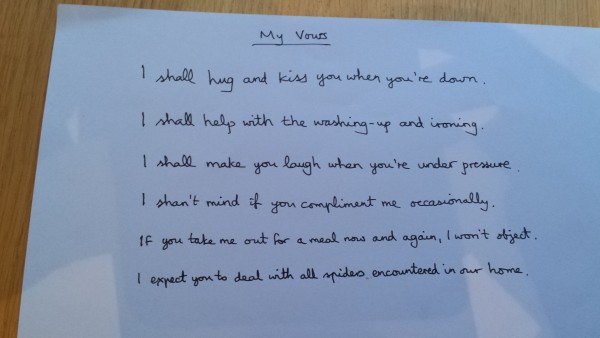
by Michael | Jan 30, 2017 | Blog
Who said wedding vows can’t be funny?
What should the tone of the vows be?
I have absolutely nothing against people who deliver traditional wedding vows. Or who write their own, solemn ones. I do respect them. Vows are highly significant. They are normally carefully chosen and delivered in the presence of a crowd of people who really matter to the couple.
As a civil celebrant, I’ve heard (and helped with) quite a few in my time.
But injecting a bit of humour and personality into those vows can work and may be absolutely appropriate. Not least, if the couple have got a rich sense of humour.
How do you do it?
I’m afraid there’s no template to follow. Nor is there a right or a wrong scenario. What you can do is to write a series of promises that contain a little humour.
One way to do this is to throw a funny line in among some serious or unfunny promises.
You can also deliver your line humorously. Maybe there can be a reference to a failing of your loved one that will be recognised by your partner and, possibly, a good number of guests! You may want to mention something about your (or your loved one’s) character.
That doesn’t mean to say that it should be all about humour and there’s no point making trivial promises. It’s not meant to be a stand-up routine. You shouldn’t force the humour. Don’t be aggressive or disrespectful.
Mention a thing if it is true (and genuinely funny). If your partner is arachnophobic, a vow such as “I promise to save you from any spider that crosses our threshold” will resonate among your guests!
A few thoughts
It goes without saying that you and your partner must both be willing and happy to write your own vows!
Before putting pen to paper, think about what makes your relationship tick.
Then write a few lines, leave your work for a day or two, come back to it and redraft, if needs be. You may need to do this a few times. When you are happy with it, practise reading it aloud. (If you’re really nervous, your celebrant will read it for you, but it’s normally better to do it yourself.)
Starting model
Personalising your vows is all about originality. If you need a starting point, here is a kind of template. By all means, use it but ADAPT IT for your own circumstances.
Use your partner’s first name first, and then say the following:
- I promise to [eg, always be at your side] – maybe 3 things
- I promise to be [your rock] – maybe 3 things
- I promise [to take your advice occasionally] –2/3 funny things
- I promise not to [check e-mails while we’re eating together] –2/3 funny things
- I promise to [love you unreservedly] – 1 or 2 serious things
Have fun with it!
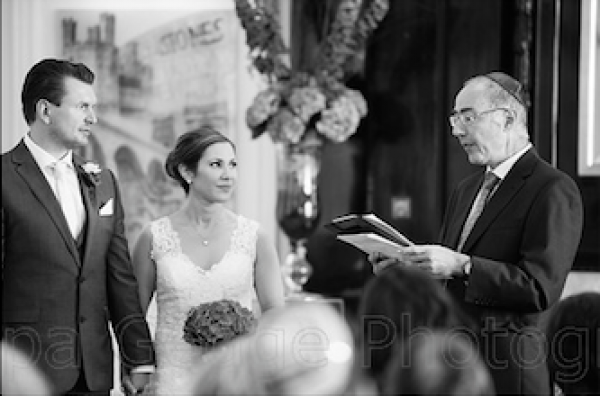
by Michael | Jan 16, 2017 | Blog
Wedding bells are ringing. Or are they?!
A Muslim and Jewess want to marry. A Christian and a Jew are very much in love. A Pagan and Russian Orthodox want to tie the knot.
A mixed-faith marriage is a bit special, is it not?
Having conducted a number of fabulous mixed-faith marriages in the last years. I’d answer with a resounding“yes”.
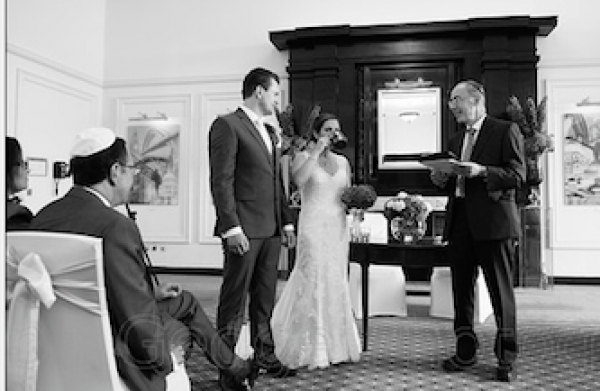
Photos courtesy of Philippa Gedge Photography
Not so simple!
Well, not everyone might be as enthusiastic as me!
What if the couple want a religious (or even, part-religious) wedding? How will they manage, if their church/synagogue/mosque/temple/you name it refuses to recognise their union?
The obvious answer is a civil ceremony. There are two kinds, so you have a choice.
Register Office Service
The register office service contains the necessary wording to make the marriage legal, so it is indispensable. Unfortunately, the ceremony itself is (reasonably enough) standard and somewhat impersonal. More to the point, it has to be totally secular. There may be no reference whatsoever to religion or even use of religious vocabulary.
So this solution, though worthy in its way, may not meet the needs of most mixed-faith couples.
Civil Ceremony
Another choice is to use a civil celebrant. As a celebrant-led ceremony does not encompass the legalities, it would have to be in addition to the registrars’ service.
As for venue, you would have two options. If your venue is licensed for marriages, the registrars will come there, perform their service and leave. At which point the civil celebrant can begin your personalised ceremony.
Alternatively, you can marry at the register office (by appointment), with two witnesses, and proceed (that day or a following one that you select) to the venue of your choosing, be it indoors or outdoors. Then you can celebrate your bespoke service absolutely as you would wish.
Advantages
The beauty of a civil ceremony is that you can incorporate your ideas and desires into the ceremony. It’s your big day, after all. So why shouldn’t you have full input? And if you are short of ideas, let your celebrant offer suggestions.
Your celebrant may well not be ordained, but he/she will still be able to include religious elements. These might be readings, music or ceremonial items. The most beautiful thing is that both partners’ religions can be honoured in this way.
Perhaps you know a mixed-faith couple who are planning their wedding, but are not happy about the options open to them. If so, please send them my way, and I’ll be delighted to have a non-obligation chat with them. That way, they may still end up with the ceremony of their dreams!
How cool would that be?!
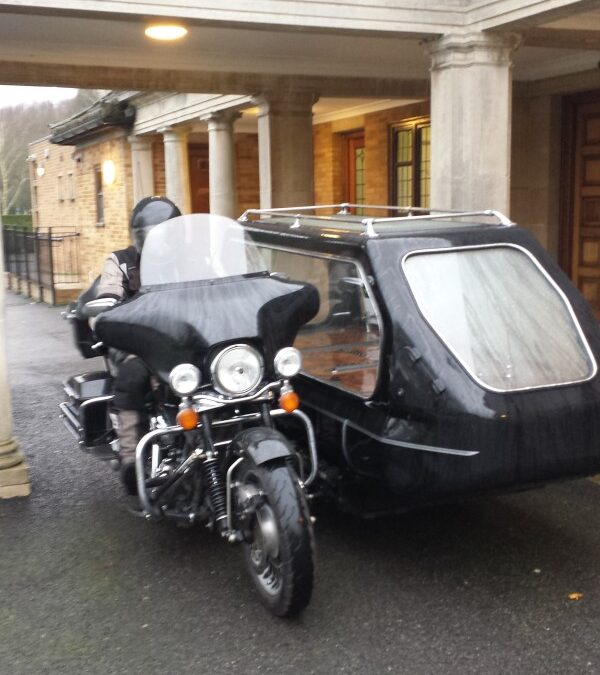
by Michael | Sep 27, 2016 | Blog
Recently, I wrote about crucial decisions that affected wedding planning. I’d now like to look at life-or-death decisions.
By that I mean decisions relating to death.
It’s an understatement, but when someone dies, it can be an extremely difficult time for those left behind. Obviously, just as relationships differ, so will reactions. Many people will be experiencing emotions such as shock, anger, grief or confusion. It is at just such a time, when they’re at their lowest ebb, that they are expected to deal with the funeral (and, potentially, probate or a contested will, etc).
First Steps
In most cases, help is available. The GP or hospital doctor who signs the death certificate will normally direct you to your next port of call. This is often the Town Hall, where there is more paperwork waiting for you before the death can be registered.
Some Councils (have a look on Google) offer a package that covers everything in one place, and that can make things much easier.
Funeral Directors can normally give advice and guidance.
Funeral
Registering the death is a legal obligation. A lot of people may be surprised to learn that a funeral is not.
Most people will choose to have a funeral. This may be through choice,or because it’s ‘the done thing’. It may well be in order to achieve closure via a ceremony. You can actually – subject to certain legal regulations – bury your loved one in your garden, if you so choose. The point is that you don’t need to have anything done beyond disposing lawfully of the body. This may certainly save on Funeral Director fees, which can be really quite high.
Questions
Nonetheless, most will go with a funeral. Of course, you have to decide on a burial (standard or woodland?) or a cremation. The deceased may have left instructions. You may have strong feelings.
How big and grand do you want the funeral to be? What about the wake?
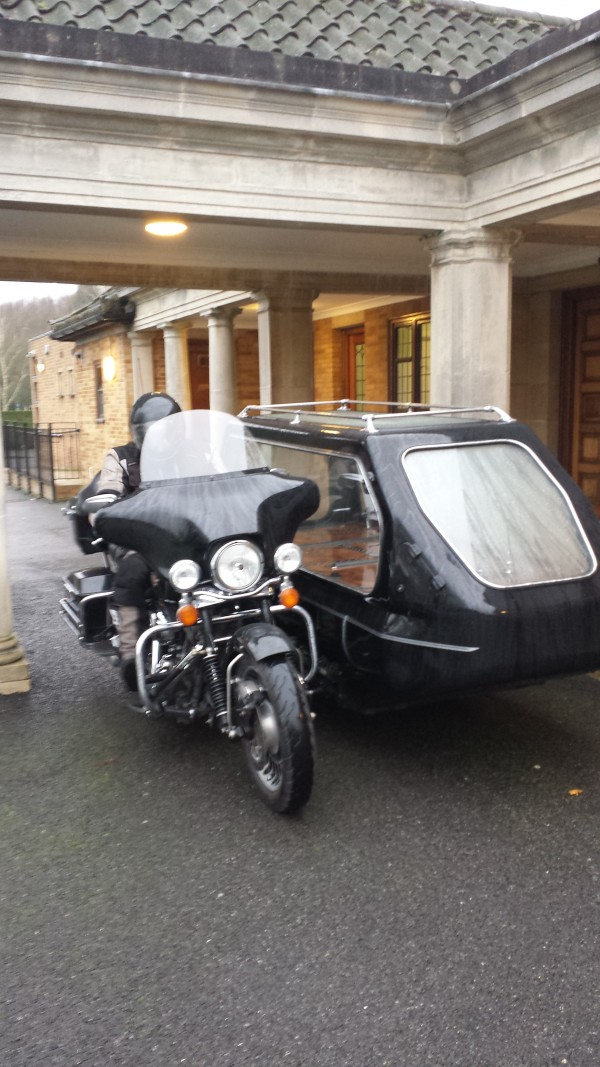
Fully, partly or not religious?
Another fallacy is that the funeral has to be fully religious. Or else, humanist.
What if the deceased totally rejected religion? What if the surviving family does? What if the deceased was agnostic? What if the family is of mixed religious faiths? In such cases, there is real scope for a civil celebrant.
A civil celebrant will visit the family and discuss the possibilities. They will be able to advise and offer suggestions. They will usually aim to make the service a celebration of life (although it will probably include serious and affecting readings and moments). The service will be tailored to your exact requirements and wishes.
Lots of issues to consider, but, as I’ve suggested, help is at hand.
I acknowledge that this article only scratches the surface of the life-or-death decisions, but I hope it raises questions that you may be glad you have faced.
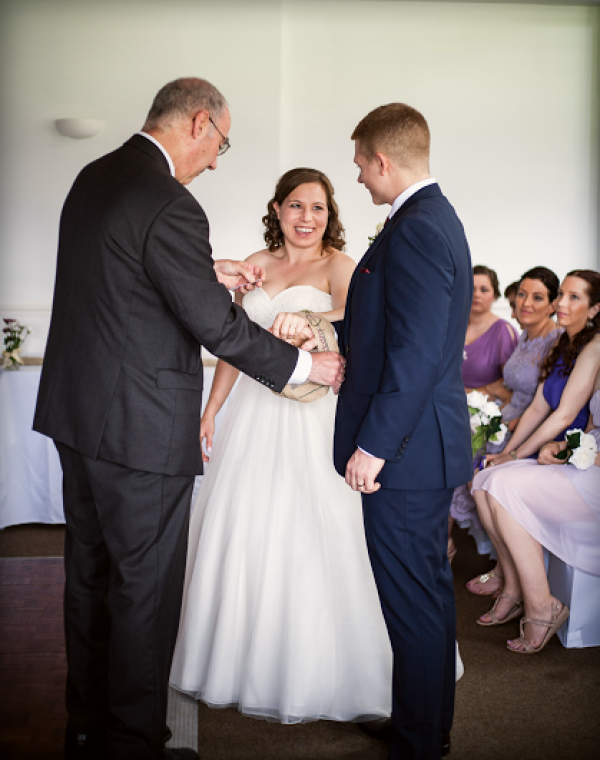
by Michael | Sep 6, 2016 | Blog
Why marry? It’s pretty easy to live with someone you love without getting wed. Marriage is all a lot of bother and expense and (depending on your viewpoint) mumbo-jumbo.
Here’s one comeback: tax and inheritance advantages of marriage. They are not to be sneezed at. However, if that’s your only motivation for marriage, then I’m not going there.
Cohabiting
There is one great reason for living together. Because you have no legal ties, there is less pressure on you both. You can make your own rules and freely agree how to deal with finances and accommodation. Indeed, the option to marry later will always exist.
If the relationship does break down, you can both walk away – maybe, easily; though not always.
It can get messy if children are involved.
Marriage
Marriage really should be a commitment. That makes it hard. By definition, committing to another person means you are promising to share what is yours (as well as what is theirs).
It means making concessions, respecting and listening to each other.
It means making your relationship a fortress – you absolutely have to ensure that you are better together than apart. You have to present a united front to all life’s challenges.
To do this, you need to understand each other and accept to differ at times, but calmly and even lovingly.
Building that ‘fortress’ should apply to couples who are cohabiting too. But without the force of the law behind them, there may be fewer incentives to achieve this.
Legalities
Having a legal binding to your relationship makes it feel harder to break out. That can be a bad thing, as some couples stay together in a toxic relationship and inadvertently damage their children.
What’s good about it is that it may encourage couples to work at their relationship. It’s all too easy to give up when sometimes all that’s needed is patience and a readiness to talk and work through the difficulties.
The Wedding
At a marriage (whether it be a regular full religious wedding, a standard register office ceremony or a bespoke civil ceremony), the couple normally are committing themselves publicly. They may repeat standard words or recite specially composed ones. Either way, they are aware of the significance of what they are promising. The fact that they are declaring this in front of (at least) their closest family and friends makes it especially significant. It gets the marriage off to a flying start.
A personal viewpoint
My wife and I lived together for a couple of years before marrying. Had that not been a success, we would not have proceeded. Going through with the ceremony underlined the fact that we were determined to make our relationship work.
We have had our moments, of course, but have worked through them (so far!). We’re looking ahead to our next anniversary, which will be our 18th. Maybe, had we stayed unmarried, but cohabiting, we’d have reached this position too. I can’t say.
All I know is that, apart from adoring our wedding day, we have no regrets about going down the marriage route. It may be old-fashioned, but that doesn’t invalidate it. We certainly recommend it to others.
Yes, it takes hard work, but the rewards are priceless.
Cover picture source: http://leerushby.com
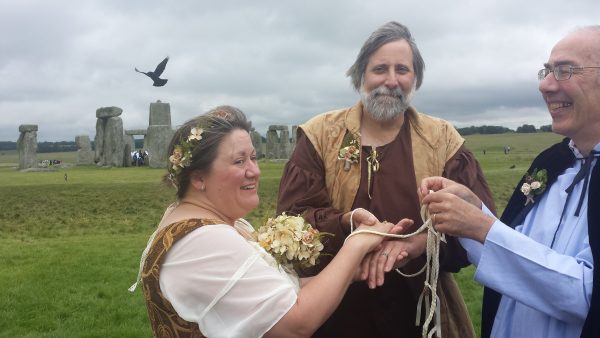
by Michael | Aug 23, 2016 | Blog
One of the many things that attracted me to the role of civil celebrant was the fact that I could offer wedding freedoms.
I could educate people that they had a choice. After all, we’re talking about what should be the biggest day of their lives.
The old way
Up until 2009, I assumed that marriage meant you either attended a full religious service, as in a church, or the register office (fully secular).
Of course, lifestyles have changed and society has become more accepting. For example, same-sex weddings have become quite commonplace. One of the favourite ceremonies I have conducted, as it happens, was same-sex.
Nonetheless, as I constantly realise from personal experience, many people are unaware that wedding freedoms exist.
Sure, the old choices are still feasible for those who want them.
The new
However, you may be a devoted couple who may not share spiritual beliefs. Happily, you can now have a romantic ceremony that includes what really matters to you. All of us have the freedom to commit to each other, surrounded by family and friends, in venues of our choice. We can invite our chosen civil celebrant to design and conduct beautiful, meaningful ceremonies.

Photo: Philippa Gedge
I seem to be asked to help create a lot of part-religious ceremonies. Among them, I have led a full (well, 95%!) Jewish wedding, a wedding blessing for a Muslim and a Jewess, a Christian marrying a Jew (with a priest covering the Christian parts!) and a half-Jew marrying a pagan.
In this way, as long as the legal bits are dealt with by the registrars first, the exact degree of religiosity, of formality and tone are up to the couple. They can thus put their seal on the proceedings and make it an absolutely unique occasion.
The tailor-made service and the personalised style and special venue all contribute to a unforgettable, wonderful occasion – a far cry, for some, from the extremes of a full religious service or the register office.
I’m glad to say that we’ve come a long way from the rigidity of the past. Then you were offered only a standard 10 minute register office ceremony or a fixed, religious ceremony that was not unique to you and may have included words you were not comfortable with.
Those still work for people. But certainly not for everyone.
I believe that wedding freedoms surely make perfect sense, don’t they?
If you agree, please help me spread the word!







